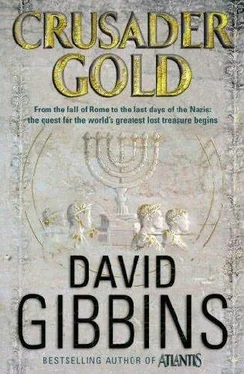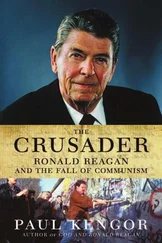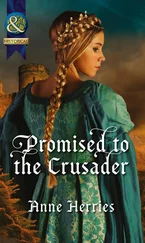David Gibbins - The Crusader's gold
Здесь есть возможность читать онлайн «David Gibbins - The Crusader's gold» весь текст электронной книги совершенно бесплатно (целиком полную версию без сокращений). В некоторых случаях можно слушать аудио, скачать через торрент в формате fb2 и присутствует краткое содержание. Жанр: Прочие приключения, на английском языке. Описание произведения, (предисловие) а так же отзывы посетителей доступны на портале библиотеки ЛибКат.
- Название:The Crusader's gold
- Автор:
- Жанр:
- Год:неизвестен
- ISBN:нет данных
- Рейтинг книги:3 / 5. Голосов: 1
-
Избранное:Добавить в избранное
- Отзывы:
-
Ваша оценка:
- 60
- 1
- 2
- 3
- 4
- 5
The Crusader's gold: краткое содержание, описание и аннотация
Предлагаем к чтению аннотацию, описание, краткое содержание или предисловие (зависит от того, что написал сам автор книги «The Crusader's gold»). Если вы не нашли необходимую информацию о книге — напишите в комментариях, мы постараемся отыскать её.
The Crusader's gold — читать онлайн бесплатно полную книгу (весь текст) целиком
Ниже представлен текст книги, разбитый по страницам. Система сохранения места последней прочитанной страницы, позволяет с удобством читать онлайн бесплатно книгу «The Crusader's gold», без необходимости каждый раз заново искать на чём Вы остановились. Поставьте закладку, и сможете в любой момент перейти на страницу, на которой закончили чтение.
Интервал:
Закладка:
Macleod nodded. “Yes,” he said. “And the expedition to Greenland was doubly bizarre. The Nazis were also obsessed with Welteislehre, World Ice Theory, a cosmological fantasy cooked up by an insane Austrian at the turn of the century. It was one of the many weird theories that gained adherents after the First World War, that seemed to offer order and explanation in a world gone mad. According to the theory, everything about the universe was a perpetual struggle between ice and fire. The Aryan master race was born in a realm of ice, and had been scattered across the globe by floods and earthquakes. Where better to find evidence of the original Aryans than the Greenland ice cap, the last great remnant of the Ice Age.”
“It would be laughable if it wasn’t for the poisonous racism underlying everything the Ahnenerbe did,” Jack said. “Because they only told Himmler what he wanted to know, their activities helped to solidify his views about Aryan superiority. Remember he was the chief architect of the Final Solution, the liquidation of the Jews.”
“So these two guys were Nazis.” Costas had picked up the photograph and was scrutinising it with Maria.
“According to Kangia, the greasy-haired one with the armband was a thoroughly nasty piece of work, constantly ranting on about Hitler and treating the Greenlanders like dogs,” Macleod said. “But the other guy seems to have been more reasonable, apparently attempting to befriend Kangia and pulling his weight on the expedition. He was fascinated by the oral traditions of the Greenlanders and promised to visit them one day by himself to record them. Apparently he became a decent dog-sledder and earned the Greenlanders’ respect. The two Germans loathed each other and hardly spoke.”
“Do you have any idea who they were?” Inuva spoke quietly from the bedside where she had been listening, her hand on her father’s brow.
Macleod turned to her. “Records of the expedition disappeared mysteriously from the Ahnenerbe headquarters at the outbreak of war, so this picture and Kangia’s memory are all we’ve got to go on. I emailed the scan back to the IMU library yesterday. They couldn’t identify the smaller man with any certainty, a face that blurs with a thousand other thugs, but the other guy has quite a history.”
“Of course. Now I recognise him,” Maria suddenly exclaimed. “The blond one. Surely it’s Rolf Kunzl, the renowned archaeologist?”
“Correct.”
“One of the founders of Viking archaeology,” Maria enthused. “His doctoral thesis on the Norse settlement of Greenland remains a benchmark for the subject. A precocious career cut short by war.”
“Then you know what happened to him.”
“The von Stauffenberg conspiracy,” Maria replied.
Macleod nodded. “One of a raft of genuine scholars forcibly recruited into the Ahnenerbe to shore up Nazi fantasies about a Norse master race. Kunzl had little choice but to play the game, even though he was openly contemptuous of the lunatic fringe who ran the Ahnenerbe, mostly crackpots and failed scholars who owed their careers to the Nazis.”
“The lunatics were running the asylum,” Costas murmured.
Macleod nodded again. “But Kunzl was never inducted into the SS because he was from an old Prussian military family, a reserve officer in the Wehrmacht, and managed to wheedle his way out of Himmler’s tentacles when the war began. He fought for two years under Rommel in the desert, reaching the rank of colonel and winning the Knight’s Cross, but then was recalled to Berlin and given a menial job. Himmler seems to have singled him out for special bullying, repeatedly accusing him of having stolen records of the Greenland expedition and concealing what they’d found. But Himmler must have given up on him by September 1944, when Kunzl was arrested and strung up with piano wire alongside von Stauffenberg for attempting to assassinate Hitler.”
“One of the good guys,” Costas murmured.
“None of the conspirators was a saint,” Macleod replied. “Kunzl had been one of the most effective Panzer commanders in the Afrika Korps and had plenty of Allied blood on his hands. He knew about the racial policies of the Nazis from his Ahnenerbe days and had apparently done nothing. But he detested Hitler and wanted the war finished before it destroyed Germany. If you look at the other man in that picture you can see where Kunzl’s loathing for the Nazis came from.”
Kangia suddenly began to speak, the soft clicking tones filling the tent as if a gentle wind were ruffling the sealskins. He reached out for the photograph and Costas handed it to him, and they watched as he jabbed his finger at the image of the taller man. Inuva leaned over intently as the old man spoke and then looked back at the others.
“Three days into the expedition they’d reached the edge of the ice cap, due east from here, and found a way up the ice to the top. After a day of hauling the sledges across the ice they were suddenly pinned down by a piteraq, a windstorm.”
Kangia heard his daughter repeat the Greenlandic word and suddenly became animated, the shadows of his arms arching high against the tent wall as he gesticulated in the flickering firelight.
“It was a ferocious storm, the worst my father had ever seen,” Inuva said. “The expedition was at the northern edge of the glacier, where a tributary ice stream begins to flow towards the fjord. The two Germans insisted on crossing on to the glacier and seeking shelter behind an ice ridge, one of the undulations where the glacier had buckled. But the Greenlanders refused, knowing it was too dangerous, and braved it out with their dogs on the exposed ice cap, huddled behind their sleds.”
The old man put his fists together, pulled them apart while making a cracking sound and then spoke again to his daughter. “There was a mighty noise,” she translated. “The glacier had pulled apart and the Germans had disappeared into it. I, Kangia, was the only one courageous enough to crawl through the wind to the edge of the crevasse, where I looked down through the swirling snow and saw an incredible sight.”
The old man had been following his daughter’s intonations and nodding emphatically, but suddenly he coughed painfully and lay back on the pile of furs, his face grey and drawn.
“He has not got long now.” Inuva gently caressed her father’s arm and then looked up apologetically at Macleod. “I think it might be time for you to go.”
Macleod nodded slowly and began to get up, but the old man held out a wavering arm and spoke once more, his words almost inaudible. His daughter leaned close and then translated again.
“It was far below, as deep as the icebergs in the fjord are high.” Macleod sat back down as she spoke. “At the bottom of the crevasse was the prow of a ship, curving up to a fearsome face, its timbers blackened and old. I, Kangia, knew what it was as soon as I saw it. Legend passed down told of giants sheathed in steel, Kablunat, who arrived from across the sea and set one of their great ships alight on the ice. I, Kangia, heard the story as a boy from my grandfather, inside this very tent circle.” The old man stopped and coughed, and Inuva looked at the others. “Our Inuit ancestors, the Thule, arrived here from the Canadian Arctic to settle about eight hundred years ago, after the native people who lived here before had died out. But Thule hunters had already been coming here before that and had encountered the bearded giants who lived in stone houses in the south of Greenland. My ancestors called them Kablunat.”
“My God,” Jack whispered. “A ship in the ice. It couldn’t be.”
“Wait. There’s more.” Inuva held her hand up and listened again as the old man spoke. “The ice began to move beneath me,” she translated. “I, Kangia, threw down a rope and hauled up the two men. The crevasse closed with a crash just as they came out. The ship had disappeared in the ice. The piteraq continued for many days and we returned to Ilulissat. That was the end of the expedition. The Germans sailed away and we never saw them again.”
Читать дальшеИнтервал:
Закладка:
Похожие книги на «The Crusader's gold»
Представляем Вашему вниманию похожие книги на «The Crusader's gold» списком для выбора. Мы отобрали схожую по названию и смыслу литературу в надежде предоставить читателям больше вариантов отыскать новые, интересные, ещё непрочитанные произведения.
Обсуждение, отзывы о книге «The Crusader's gold» и просто собственные мнения читателей. Оставьте ваши комментарии, напишите, что Вы думаете о произведении, его смысле или главных героях. Укажите что конкретно понравилось, а что нет, и почему Вы так считаете.












